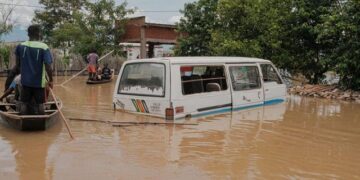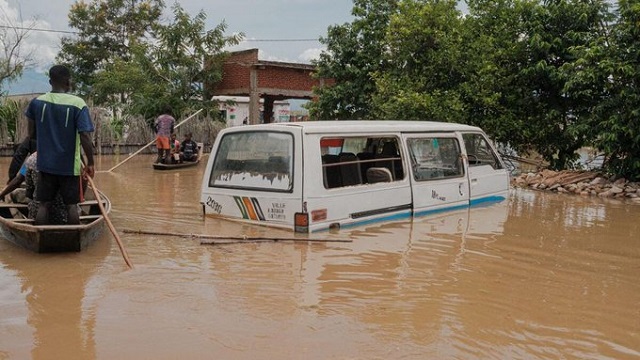By Enyichukwu Enemanna
Tanzania’s Prime Minister on Thursday announced that no fewer than 155 people have died following torrential rains linked to El Nino, which triggered flooding and landslides in the East African country.
Tanzania and neighbouring countries have been affected by heavier than usual rainfall during the current rainy season, with several dozen deaths also reported in Kenya.
Prime Minister Kassim Majaliwa said more than 200,000 people have been displaced by the disaster in Tanzania, with 155 fatalities and 236 people injured.
“The heavy El Nino rains, accompanied by strong winds, floods and landslides in various parts of the country, have caused significant damage,” Majaliwa told parliament.
He said homes, property, crops and infrastructure such as roads, bridges, railways and schools had been damaged or destroyed.
The devastating effects of the rains were “primarily due to environmental degradation”, he added, blaming deforestation, unsustainable farming practices such as “slash and burn” agriculture and unregulated livestock grazing.
On April 14, the government said a total of 58 people, including children, had been killed in rains and floods since the beginning of the month.
El Nino is a naturally occurring climate pattern typically associated with increased heat worldwide, as well as drought in some parts of the world and heavy rains elsewhere and can have a devastating impact in East Africa, AFP reports.
In neighbouring Kenya, about 45 people have been killed since the start of the rainy season in March, including 13 who lost their lives in flash floods in the capital Nairobi this week.
President William Ruto convened an emergency multi-agency meeting Thursday to respond to the crisis after torrential rains and floods caused chaos across the city, blocking roads and engulfing homes in slum districts.
Some parts of Nairobi remained under water on Thursday, and Kenyans have been warned to stay on alert, with the forecast for more heavy rains across the country in coming days.
Deputy President Rigathi Gachagua told a press briefing that people affected by the floods would be given food and other goods, while those living in the most vulnerable areas would be relocated.




































